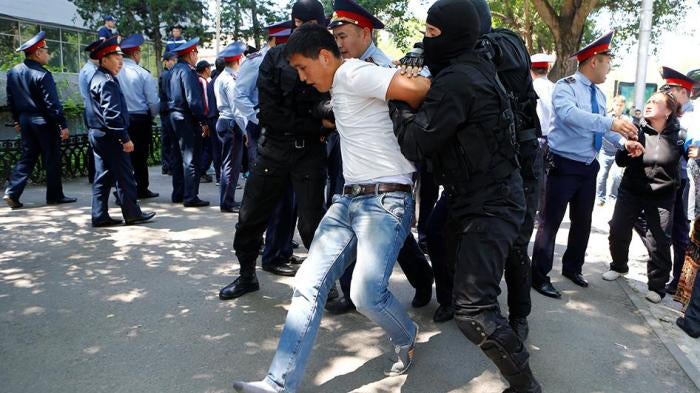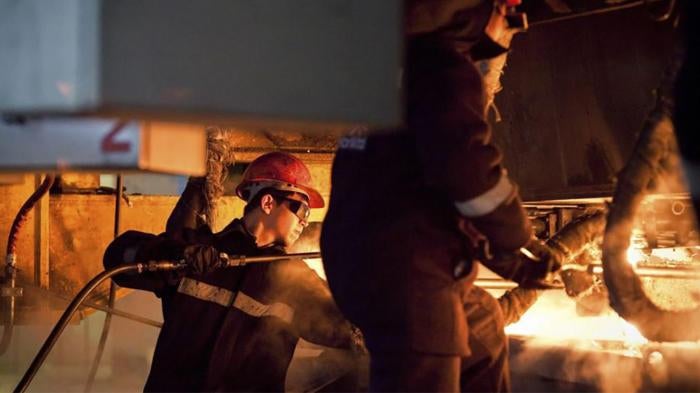Video: Workers' Unions Under Attack in Kazakhstan
Read a text description of this video
Mihra Rittmann
Researcher, Human Rights Watch
Kazakhstan’s economy is fueled by large reserves of natural resources like oil and gas. But despite significant economic development over the last decade, Kazakhstan has long been a country of quiet repression. The government has strict controls over freedom of speech and freedom of assembly and now it has tightened controls over trade unions as well. In 2011, strikes by oil workers in western Kazakhstan ended in a violent crackdown. The police opened fire on workers and others killing at least 12 people.
Yevgeniy Zhovtis
Kazakhstan International Bureau for Human Rights and Rule of Law
The oil workers who participated in the protests were members of independent unions to one degree or another, or created independent unions during that strike. This frightened the government and they decided it was necessary to adopt new trade union legislation to better control the unions.
Mihra Rittmann
Researcher, Human Rights Watch
The new laws in Kazakhstan have created obstacles for worker organizing, restrictions on collective bargaining, and have made it difficult for workers to protect their rights by going on strike.
Larisa Kharkova
Confederation of Independent Trade Unions of Kazakhstan
The activities of trade unions changed significantly with the adoption of the new trade union law. Trade unions that were independent had to re-register and receive a new status. Our organization, which united independent trade unions, wasn’t able to re-register. None of our trade unions could make amendments or additions to their charters, so we were paralyzed.
Mihra Rittmann
Researcher, Human Rights Watch
Trade union leaders in Kazakhstan face harassment and surveillance by government officials or by law enforcement. They can also face retaliatory action on the part of companies that employ them.
Larisa Kharkova
Confederation of Independent Trade Unions of Kazakhstan
Many of our leaders experience a lot of pressure. They can't work or make decisions because of the constant presence of the authorities. I feel it strongly myself, too. It is exhausting, stressful, and I can feel this constant surveillance.
Mihra Rittmann
Researcher, Human Rights Watch
Trade unions are the only organizations that can effectively defend and protect workers’ interests in the workplace. The International Labor Organization has repeatedly called on Kazakhstan to amend its restrictive legislation. Kazakhstan's key economic partners, like the European Union or the United States, should call on Kazakhstan to take immediate steps to allow workers organize freely.
Kazakhstan’s new trade union law, adopted after unresolved labor strikes in 2011, has made it more difficult to organize independent unions in the country. Changes to the labor and criminal codes have contributed to an environment hostile to worker activism. Human Rights Watch interviewed more than 50 trade union leaders, labor activists, and workers in key industries across Kazakhstan, and documented harassment, surveillance, and, in some cases, spurious legal prosecution or dismissals in apparent retaliation for labor activism. The Kazakh government should take immediate steps to lift restrictions on workers’ rights and the ability to organize.

